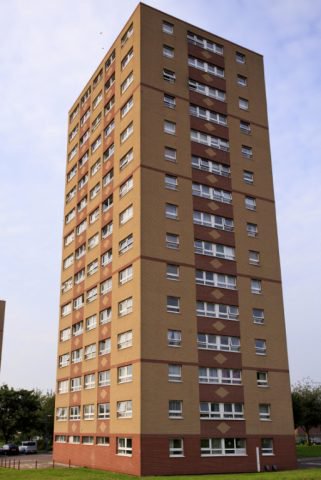Council leaders call for Right-to-Buy reform
Council leaders in England have today called for the Government to make reforms to the right-to-buy scheme in light of new figures.
Analysis completed by the Local Government Association reveals that 12,246 council properties were sold to tenants under the scheme in 2015/16. However, just 2,055 replacements were started by councils, a fall of 27% on the previous year.
Right-to Buy
The Right-to-Buy scheme was designed to allow low-income tenants to purchase their council-owned home at a discounted price.
Since its inception in the early 1980’s, nearly 2m properties have been sold to these tenants by councils across England. As a result, the proportion of homes that are social housing have fallen from 31% to 17%.
Numbers of people using the scheme were on the downturn, until the Government re-launched the scheme in 2012, offering quadruple discounts for London tenants.
The scheme has already been scrapped in Scotland, with the Welsh assembly also confirming plans to abolish it. Now, the Local Government Association has said that the scheme could become defunct in England, if more is not done to fund replacement homes.
Replacements
Representing 370 local authorities across England, the Local Government Association said it expects 66,000 council properties to be sold to tenants by the year 2020. Councils are expected to struggle to replace many of them.
A further 22,000 properties will be sold should councils be forced to offload higher-value properties to fund an extension of the scheme to housing associations. In their manifesto before last year’s general election, the Government promised to make discounts available to 1.3million housing association tenants.
The Local Government Association warns that a fall in council homes would exacerbate the housing crisis, with an increase in homelessness and spending on housing benefit.

Council leaders call for Right-to-Buy reform
Re-launch
Since the re-launch, the Government has pledged to provide one-for-one replacements for additional homes sold. The Local Government Association said that prompt reform is necessary to ensure councils replace stock efficiently.
The Association believes authorities must keep 100% of receipts from sales, as opposed to the one-third they can currently retain. In addition, it has called for discounts to be set to reflect regional variations in property values.
Nick Forbes, senior vice chair of the Local Government Association noted, ‘Right to Buy will quickly become a thing of the past in England if councils continue to be prevented from building new homes. Housing reforms that reduce rents and force councils to sell homes will make building new properties and replacing those sold even more difficult. Such as loss in social housing risks pushing more people into the more expensive private rented sector, increasing homelessness and housing benefit spending.’[1]
Commitment
The Department for Communities and Local Government (DCLG) said that the Government was prepared to undertake action to ensure the provision of additional homes.
It noted, ‘we’re committed to building the homes this country needs and investing £8bn to build 400,000 more affordable homes. There is a rolling three-year deadline for local authorities to deliver an additional affordable home and so far they have delivered well within their sales profile.’[1]
‘However, we have always been clear that if local authorities don’t start building replacement homes within the three-year deadline, then we will step in and build them for them.’[1]
[1] https://www.theguardian.com/society/2016/aug/11/right-to-buy-reform-urged-as-council-leaders-fear-for-social-housing?CMP=share_btn_tw



